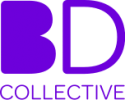ANNUAL REVIEW 2022
Feedback from the Annual Review
|
What have you heard that you liked?
|
|
What didn’t you hear that you expected to?
|
Thoughts, Comments, Suggestions:
- Barking & Dagenham is well-connected and open to collaboration.
- There seems to be more trust and acceptance.
- 5,000 organisations in the borough – who are they?
- Need to become familiar with calling one another (and ensure we complement rather than duplicate one another’s activities) and perhaps have a contact list on Discourse (so we can contact one another more easily)
- Need a simple sector manifesto
- Need to emphasise the Collective among the younger generation so they can carry forward and build on the networks and the Collective as a whole
- Need to improve the visibility of the Collective in the borough so residents are more aware of the services, support and information available
- There is still room for improvement – why are there not more people/organisations and groups involved in networks? Why is it so hard to learn from/connect with others?
- How do we reach organisations that are led by non-English speaking people? We need to reach all ethnic groups.
- How can we help families relocated to isolated areas with no means of support?
- How can we manage contracts with the flexibility to make actual change?
- Cost of living crisis: as we face difficult times over the next few years, we need to be ready to support groups with advice i.e., cash flow, accounting, contracts, notice if council pull contracts, backup plans and exit strategies
- Some individuals (particularly those representing smaller organisations and those volunteering) struggled to attend the meeting as it took place during working hours – would it be better to hold evening or Saturday morning meetings in the future?
